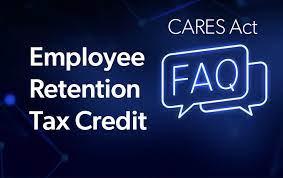Startup Pandemic Relief Funds 2024: Free Eligibility Check & Rebate Calculator
Startups, small businesses and non-profits can still claim ERTC pandemic relief funds, but only if they act fast. This free eligibility test can tell you if you qualify, and for how much – with absolutely no obligation. It’s just a few simple questions.

What would you say if I told you that there are billions of dollars in pandemic relief funds still waiting to be claimed?
It's the truth - because many small business owners, startup founders, and non-profit execs aren't even aware that they qualify for rebates, which average about $150,000. I'll walk you through the problem, and the easy solution, but if you want to jump right to a free eligibility test and fast claim service, I would recommend ERTC Express, at https://bit.ly/ertc26
The ERTC Program Explained
In 2020 and 2021, the federal government offered small businesses a rebate program to help us keep employees on the payroll during the pandemic, this was known as the Employee Retention Tax Credit or ERTC program. However, as mentioned earlier, many employers still have not completed their applications.
There are lots of reasons for this, but the most common one by far is someone thinking, "Well, I can't qualify, so why bother?"
Here's the thing though - you probably can qualify, even if you know for a fact that you didn't before. They've expanded the eligibility requirements, upped the maximum rebate amounts, and made it so you can even apply if you've already got Paycheck Protection Program (PPP) loans.
Bigger Rebates For More Businesses
Originally, when the ERTC first started, the list of who could apply was pretty narrow, and the rebates were fairly small. All of that has changed.
Today, practically anyone who was running a small business can apply and receive rebates, whether they have 20 employees or 450 employees, and it doesn't matter if they're operating an ice cream store, a tech startup, or even a non-profit organization.
The amount you can claim depends on your business, but with the average claim being roughly $150,000 - it's definitely worth checking out.
You can claim as much as $21,000 per employee, with no upper limit on funding.
Except I wouldn't try to claim it yourself, let a professional handle it.
Free Eligibility Test For Everyone
Whether you're running a shoe store or a non-profit clinic, clicking here and taking the free eligibility test can give you a fast answer.
It only asks about a dozen questions, and they're all easy ones like, "How many employees did you have in 2021?" Don't worry, it doesn't ask for any proprietary business information, and there's absolutely no cost or obligation.
What you will get is near-instant answers. It may take a few minutes at most, but you'll find out whether you qualify for a rebate, and approximately how much you'll be able to claim. Just make sure that you apply soon, because the final deadline is April 2025.
The primary requirements are easy, a business must have had between 5 and 500 W-2 employees on payroll, and they must have been negatively affected by the pandemic in some way. That's pretty much everyone.
Startups have slightly different rules and requirements than other businesses, but may be eligible for up to $100,000 in Recovery Startup Business funds.
Use A Trusted Professional To Make Your Claims
It is absolutely essential that you only use a professional familiar with the ERTC program to make your claim.
The program can be complex, and has been modified several times over the years - so your normal accountant may be a little out of their depth. I also wouldn't trust any type of automated software.
ERTC Express uses a professional team of CPAs that specialize in the ERTC program, and they have three experts cross-check each claim before it's filed - to make sure you get every last dollar.
As their website explains, “Our team of ERTC specialists will identify the best possible ways to maximize your ERTC refund. On average, our refunds are 40-120% higher than those of large payroll & software companies.”
When it comes to claiming a big rebate from the IRS, don't risk it with a second-rate service.
Check your eligibility for free and talk to a specialist at https://bit.ly/ertc26

